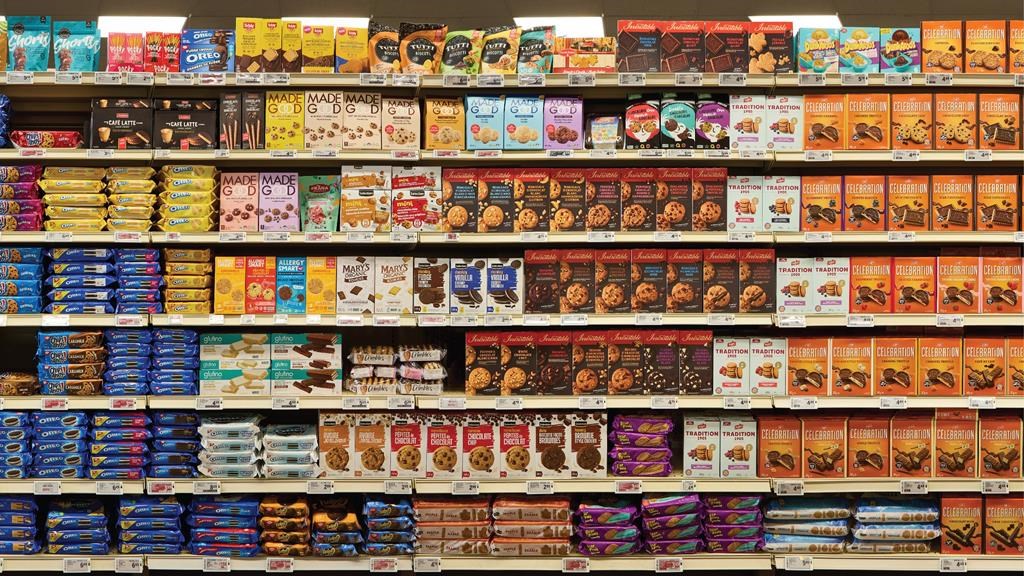
Consumers have been buying more private-label products at the grocery store to save money — and the trend may be here to stay.
Amid renewed investment by the grocers in their store-branded offerings, studies show many shoppers no longer see store brands as lower quality than name brands.
Peter Chapman, founder of consulting firm SKUFood, says retailers have been responding to the uptick in demand by investing more in their private-label products, launching new ones and giving them more shelf space.

Grocers’ private-label brands — like Loblaw’s No Name or Metro’s Selection — tend to be priced lower than their name-brand competitors, though they’re often made by the same manufacturers.
Chapman says they also have better margins for the grocers, and can increase customer loyalty.
He says after seeing private-label sales grow, he thinks retailers will work hard to keep them at that level through new products, marketing, promotions and visibility in stores.
This report by The Canadian Press was first published Oct. 3, 2024.
Companies in this story: (TSX:MRU, TSX:L, TSX:EMP.A)


